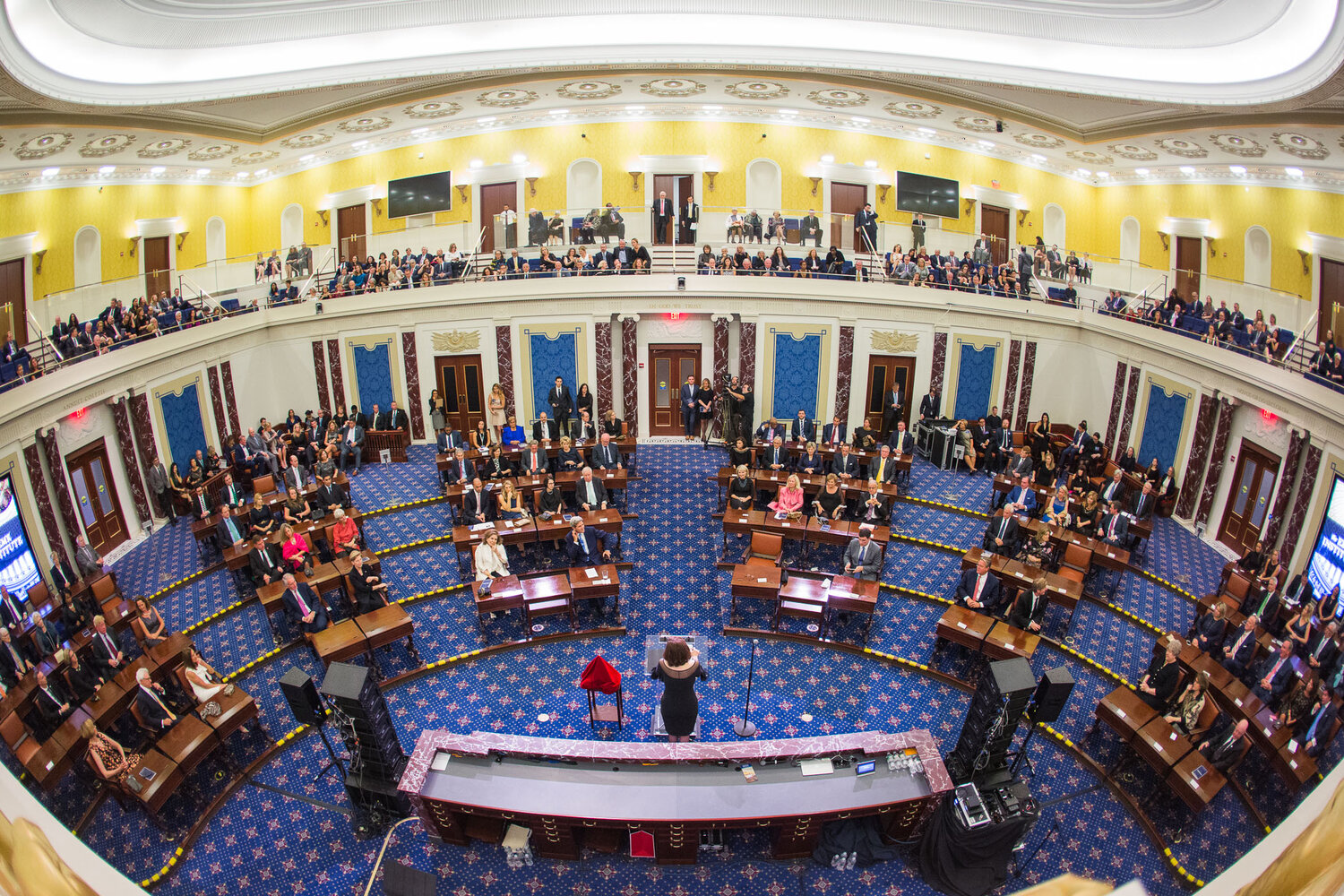To Win Labor Law Reform Like the PRO Act, We Must Scrap the Filibuster
Finally, it appears that the filibuster's days may be numbered. This is good news, because the closer we get to scrapping the filibuster, the closer we get to passing major labor law reform like the PRO Act.

The PRO Act’s survival is contingent on modification to the filibuster. (Eric Haynes / Creative Commons)
The most exciting news in DC this past week has been the fast-evolving politics surrounding the Senate filibuster. Progressive organizations have long urged Democrats to do away with the weapon altogether, to which President Joe Biden and moderate party members have largely been opposed to, but Senator Joe Manchin — the most ardent defender of the sixty-vote threshold for legislation — surprised many last Sunday when he stated that he was open to reforming the filibuster to make it more “painful” on the minority party to deploy.
This led to several days of discourse weighing the relative merits of a filibuster-less reality, until Biden said in a sit-down interview that he fully supported changing the rule to the pre-1975 norm and allow for only a “talking” filibuster.
This reform, if crafted after proposals recently popularized by Norman Ornstein and Adam Jentleson, would flip the burden from the majority party needing to find sixty votes to the minority party needing to maintain both a speaker at the lectern and forty-one senators on the floor at all times. Gone would be the ability to shut down deliberation on a bill with a simple email from a staffer; senators would now have to talk, talk, and talk some more to even begin to circumvent majority rule in the chamber. There’s a reason why such speak-a-thons were rarely deployed and virtually never successful before 1975: they don’t work if the majority is truly committed to passing the bill in question.
Earlier today, Senator Chuck Schumer stated that he would officially introduce the voting-rights-based For the People Act sometime this week. It is seen by many as Democrats’ official wedge against the filibuster, serving as the spearhead through which Republican obstruction of popular legislation would finally gut the modern version of the rule. Unless Manchin has a change of heart on filibuster reform or Kyrsten Sinema takes on the whole Democratic Caucus by herself, election law reform seems likely to pass.
Where would that leave labor law reform? The Protecting the Right to Organize Act passed the House last week. It stands zero chance of becoming law with any Republican votes in the Senate, let alone the sixty necessary to pass under current rules. The PRO Act’s survival thus was always contingent on the filibuster’s modification (or outright death), and while House Democrats were encouragingly swift in re-introducing and voting on the bill this Congress, labor law reform was never going to be the party’s vehicle to overturn Senate bylaws.
Workers’ rights have spent many years out of the limelight as a galvanizing force for the Democratic Party, while voting rights are at the forefront of political debate following the theatrics of the 2020 election and state Republicans’ planned restrictions on “fraudulent” votes.
The question, then, is where labor law falls in the new world of the talking filibuster. Would it be one of the first bills prioritized for passage? Would Democrats push it over Republicans’ best Jimmy Stewart impressions? Does it have fifty votes in its current form? Does it have fifty votes in any form?
I’m not sure if we have enough information to prognosticate yet. Forty-five of the fifty senators in the caucus are already sponsors, the holdouts being Manchin, Sinema, Angus King, Mark Kelly, and Mark Warner. None of them have said much of anything on-record about the bill, but that’s probably a good thing. By early 2009, when the Employee Free Choice Act was finally a real possibility with Democrats holding a filibuster-proof majority, several senators suddenly let it be known that they would not support the bill’s card check provision. No such hesitance has appeared in any hill reporting so far.
What we do know is that every ounce of criticism directed at the filibuster from current Democratic senators (whether it be Manchin, Amy Klobuchar, or Dick Durbin) puts us a little closer to a world in which the PRO Act becomes reality. As I’ve discussed before, the filibuster is what’s tanked every attempt at pro-labor reform to the National Labor Relations Act, from “Right to Work” repeal in the 1960s, beefed-up NLRB remedies in the 1970s, Mackay Radio–reversal in the 1990s, and card check in the 2000s. With the filibuster gone, we may finally be able to achieve the NLRA’s purpose of bringing industrial democracy to the United States through the encouragement of collective bargaining.